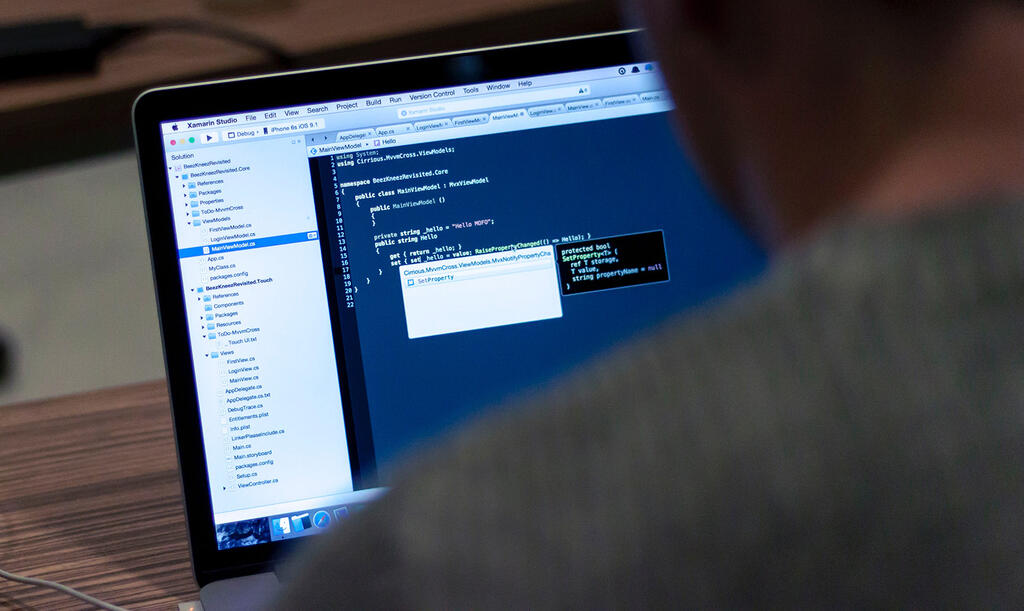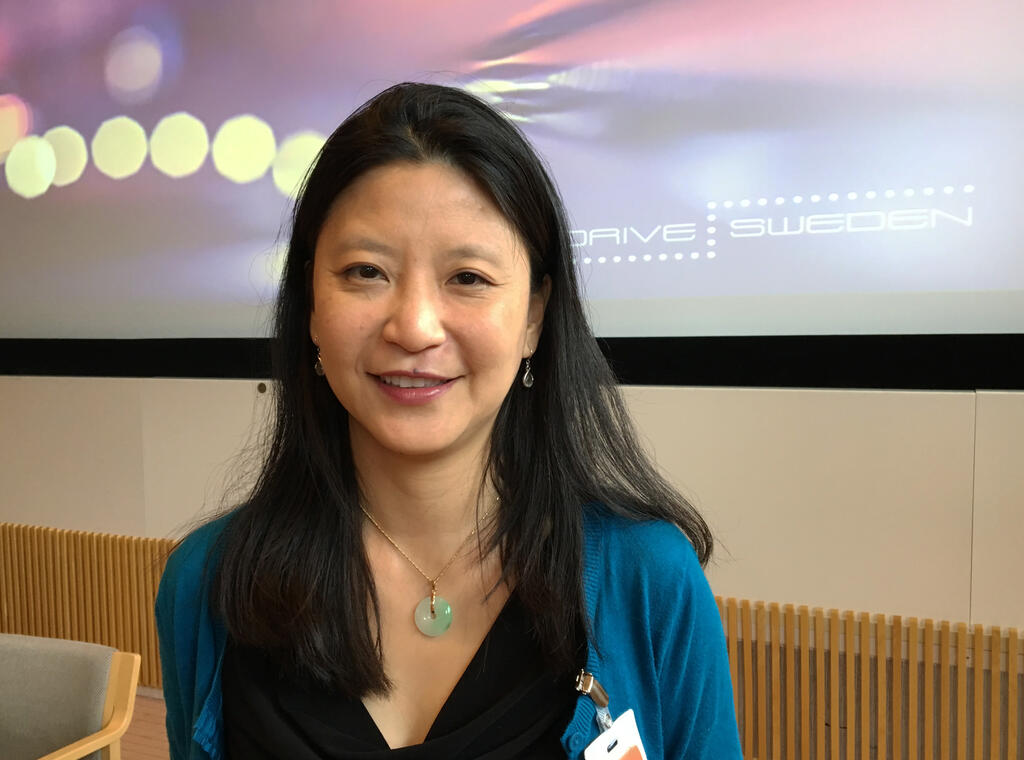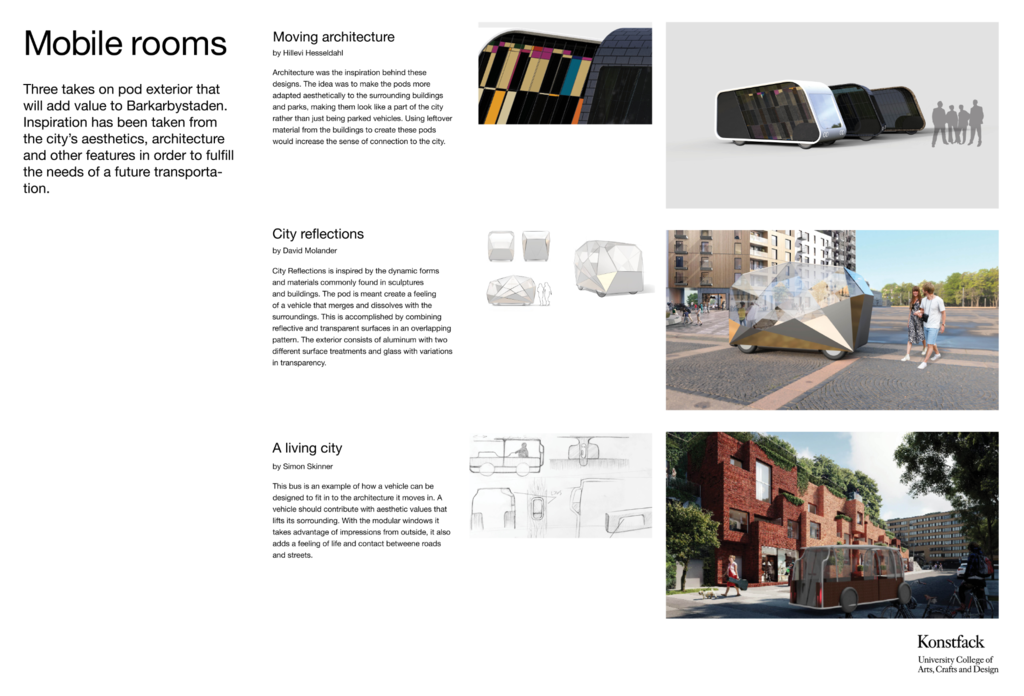Big data and strong ideas at Drive Sweden Forum
Data was the main topic when about 100 Drive Sweden Forum participants gathered at IBM in Kista. Keynote speaker Professor Sonia Yeh from Chalmers University of Technology described how big and continuous data can improve mobility transitions and students from Konstfack shared visualized ideas on automated buses.

Catharina Elmsäter-Svärd, Chairwoman of Drive Sweden, started off by reminding the audience about ”why we are doing this’.
”If we look at the the UNs 17 Sustainable Development Goals, 14 are in some way connected to transport. The program of Drive Sweden is a way for Sweden to contribute to these goals and to be a country driving innovation and development.”
In order to track consumer behavior and mobility patterns, Professor Sonia Yeh, from UC Davis and Chalmers, uses global data, for example, from Twitter. The use of data can help foresee traffic delays and congestion, plot travel distances, estimate travel demands, etc.
“This is a very exciting area and I think Drive Sweden can bring together people who are involved in different aspects, to share ideas and to stimulate new potential collaborations.”
“Ultimately my own personal interest is really to explore how to improve how we move, more efficiently and more environmental friendly – in a more sustainable way. Transport has multiple purposes, and my goal is to minimize the drawbacks, like pollution, while enhancing the benefits and create a more exciting society.”
A panel consisting of Stefan Engdahl, Swedish Transport Administration, Olle Isaksson, Ericsson, Mattias Lundberg, City of Stockholm and Mats Lundin, Volvo Cars, developed their thoughts and ideas connected to “A digital infrastructure” and what kind of data that could or should be shared.
”Drive Sweden is an excellent arena to discuss a joint definition of a digital infrastructure. The business model needs to be in place – to decide who is responsible and who executes,” Olle Isaksson.
“The CEO of Volvo Cars has announced that safety data should be free and shared. We need to have our cars connected to reach the safety goals. But we need to look into the privacy regulation too, so to have this arena is key”, said Mats Lundin.
“If we had more info from the vehicles, we could handle the traffic flows more efficiently, and we will be part of this development. In Sweden we are good at cooperation between government bodies and companies, and this will make us successful”, Stefan Engdahl commented.
During the breaks, students from Konstfack University of Arts, Crafts and Design shared their visualized ideas on automated buses. Their Sustainable Design teacher, industrial designer Leif Theis, commented;
“We worked with pods, or autonomous buses. Our starting point was to use a platform developed by ITRL (Integrated Transport Research Lab) at KTH. The students then created several concepts, based on two scenarios – one here in Kista and the other one in Barkarby. Instead of being limited by technical issues, they took a human approach – how would we like this to work? They really enjoyed this project.”
Concept by Hillevi Hesseldahl, David Molander and Simon Skinner:
Among other things, the participants also learned more about BestMile, Freelway and UniqueSec during their partner pitches.
Presentations:
- Program Update, Jan Hellåker
- Big and Continuous Data, Sonia Yeh, UC Davis & Chalmers
- Partner pitch: BestMile, Luc Texier (e-mail)
- Autolog - freight applications, Sofie Vennersten, CLOSER at Lindholmen Science Park
- Technology won’t save us, Data will, Erik Borälv, Vinnova
- Partner pitch: Freelway, Tobias Forngren
- Cognitive IoT platforms ready to use, Robert Quinn, IBM Cognitive Solutions Team
- Partner pitch: UniqueSec, Kasra Haghigi
- Status report from the Government's Commission, Kristina Andersson
- Success stories, using data, Miroslav Holecy, IBM




